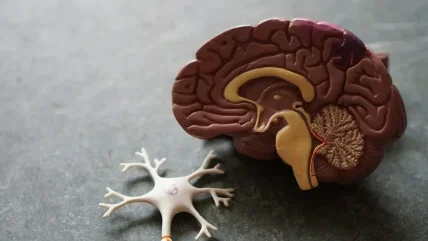
BlueRock Therapeutics, a clinical-stage cell therapy company of Bayer, has announced positive results for its investigational cell therapy bemdaneprocel in treating Parkinson’s disease (PD).
The positive results are based on 24-month data from the Phase 1 exPDite clinical trial, designed to assess the safety and tolerability of bemdaneprocel.
Bemdaneprocel is a clinically advanced investigational cell therapy designed to replace the dopamine-producing neurons that are lost in PD.
The therapy involves the implantation of dopaminergic neuron precursors into the brain of a person with PD, to restore the motor and non-motor function.
The dopaminergic neuron precursors are derived from human embryonic stem cells (pluripotent stem cells) in a surgical procedure.
BlueRock Therapeutics chief development and medical officer Amit Rakhit said: “We are very excited to share the 24-month data from the exPDite trial which shows that bemdaneprocel could be a potentially meaningful treatment option for individuals living with Parkinson’s disease.
“The completion of this study marks an important milestone for bemdaneprocel and sets the stage for the next phase of clinical development.”
Bayer pharmaceuticals division research and development head Christian Rommel said: “The continued positive results of the exploratory clinical endpoints for bemdaneprocel after 24 months are encouraging and support our commitment to developing innovative therapies that can significantly improve patient lives.”
exPDite is a multi-centre, multi-site, open-label, non-randomised, non-controlled Phase 1 study.
In the study, the 12 subjects diagnosed with PD received surgical transplantation with any of two different dose levels of bemdaneprocel to the post-commissural putamen bilaterally.
Cohort A of 5 subjects received a dose of 0.9 million cells per putamen, and Cohort B of 7 subjects received 2.7 million cells per putamen.
Safety and tolerability of the treatment were assessed at 12 months as the primary endpoint, and the assessments were repeated at 18 months and final assessments at 24 months.
At 24 months, bemdaneprocel continued to be well-tolerated by patients, with no adverse events reported, and a safety profile consistent with earlier findings.
The transplanted cells continue to survive and engraft in the brain after discontinuing immunosuppression therapy at 12 months.
Also, the secondary clinical endpoints associated with motor symptoms continued to show positive trends from baseline through the duration of follow-up.
The consistent positive trends suggest that bemdaneprocel has the potential to provide sustained benefits for movement impairments caused by the disease, said BlueRock.
University of California (UCI) School of Medicine Department of Neurology chair and the study principal investigator Claire Henchcliffe said: “There is considerable momentum in the concept of restoring dopamine inputs in the brain using transplanted cells, and the positive results from the exPDite trial leads the drive forward.
“The completed study demonstrates that the transplanted cells survive and there are early signs that bemdaneprocel can potentially help patients to better control their motor symptoms. These are exciting results that warrant further exploration in a next phase placebo-controlled study.”






